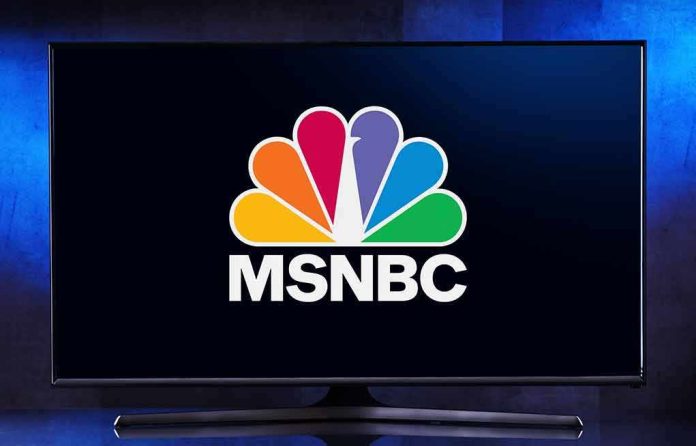
When a sitting president publicly demands the firing of a late-night host and a federal regulator echoes the call, the line between political power and press freedom is tested in ways America has rarely seen.
Story Snapshot
- President Donald Trump demanded NBC fire Seth Meyers after critical monologues aired.
- FCC Commissioner Brendan Carr reposted Trump’s demand, sparking debate over regulatory overreach.
- Media, legal, and public figures voiced concerns about free speech and government interference.
- The controversy remains unresolved, with NBC and Meyers yet to issue official responses.
Presidential Power Collides with Late-Night Satire
November 2025 delivered a spectacle that could only play out in the hyper-politicized world of modern American media. President Donald Trump, no stranger to public feuds, took direct aim at NBC and Seth Meyers. Following a late-night monologue that referenced Trump and the infamous Epstein files, Trump posted on Truth Social, demanding Meyers’ immediate firing. The escalation came swiftly: FCC Commissioner Brendan Carr, a federal regulator, reposted the president’s decree on X, lending the weight of government to what had, until then, been a familiar battle between politician and satirist.
This public partnership between the executive branch and a regulatory authority ignited a media firestorm. Commentators, legal scholars, and industry insiders began dissecting the implications. The American public, meanwhile, watched as the boundaries between political retribution and protected free speech grew alarmingly blurred. For NBC, the stakes grew overnight. The network faced mounting pressure not just from the White House, but from a federal agency tasked with overseeing broadcast standards.
The FCC’s Amplification: Government Overreach or Justified Critique?
The Federal Communications Commission, charged with enforcing technical and legal standards, rarely intervenes in editorial disputes. Yet Commissioner Carr’s repost of Trump’s demand marked a dramatic departure from regulatory norms. Carr’s action was more than a retweet; it was a signal flare. Media critics blasted the move as a breach of regulatory neutrality, warning that such conduct could chill editorial independence across the industry. Legal experts pointed to First Amendment concerns, arguing that government officials pressuring networks to silence critics risked unconstitutional censorship and undermined democratic norms.
On the other side, Trump’s supporters argued that late-night hosts like Meyers had transformed entertainment into relentless partisan attack, meriting accountability. They cheered the FCC’s involvement as overdue oversight of a media landscape they see as hostile to conservative voices. But even among some conservatives, worries grew over the precedent of regulators targeting satirical speech, no matter how acerbic.
Historic Grievances and the New Frontline of Media Wars
The Trump-Meyers feud was not born overnight. Their history dates back to Meyers’ notorious 2011 White House Correspondents’ Dinner roast, an event Trump has never forgotten. Over the years, Meyers has maintained a sharp, critical edge toward Trump, and NBC’s recent renewal of his contract through 2028 signaled confidence in his approach. Trump, meanwhile, has made a habit of calling out late-night hosts—Jimmy Kimmel and Stephen Colbert among them—using his platform to demand suspensions or firings.
This latest episode, however, introduced something new: the active participation of a federal official in amplifying a president’s call for a media figure’s ouster. For media executives, the message was clear: political displeasure could now be enforced—or at least echoed—by those with regulatory authority. The chilling effect on creative and satirical speech became a central topic of debate among journalists and academics.
The Stakes for Free Speech and Editorial Independence
As of this writing, NBC and Seth Meyers have not issued official responses, leaving the outcome uncertain and speculation rampant. The House Oversight Committee’s pending release of additional Epstein files—referenced in Meyers’ recent monologues—adds fuel to the controversy. The episode has already prompted calls for clearer boundaries between regulatory authority and editorial content. Media organizations are reassessing their risk calculus, weighing the value of provocative political satire against the specter of governmental intervention.
Analysts warn that this incident could embolden future administrations to pressure broadcasters, regardless of political party. The long-term implications reach beyond NBC and late-night television, touching the foundational questions of American democracy: Who decides what can be said on national airwaves? And what happens when those with the power to regulate speech join the chorus demanding silence?
Sources:
TV Insider – Seth Meyers Trump Criticism: FCC Chairman Promotes



